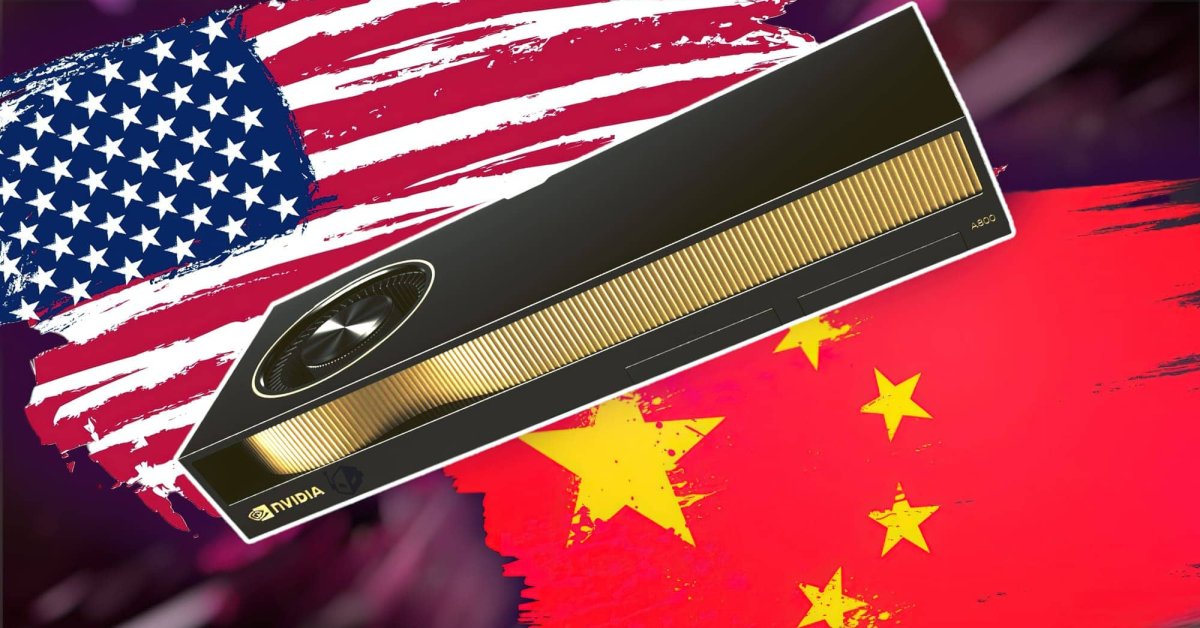The Great AI Suitcase Caper: How China Pulled Off Tech's Most Audacious Smuggling Operation
Karamchand - Jun 18, 2025

Epic tech heist! China smuggles 80TB of AI data in suitcases to Southeast Asia, outsmarting US sanctions with brilliant briefcase bootlegging scheme.
- AI Intimidation Tactics: CEOs Turn Flawed Technology Into Employee Fear Machine
- David vs. Goliath 2.0: How DeepL's NVIDIA SuperPOD Makes Google Translate Look Like Dial-Up Internet
- The Ultimate Tech Betrayal: OpenAI's Nuclear Revenge Plot Against Sugar Daddy Microsoft
Move over, Ocean's Eleven! The latest heist making headlines involves no jewels or cash. Instead, China AI data smuggling has reached spy-movie levels of creativity. Furthermore, this operation makes international espionage look like child's play.

When Sanctions Meet Silicon Valley Ingenuity
The US thought they had China cornered with AI chip export restrictions. However, Chinese engineers just proved that where there's a will, there's a way. Additionally, their solution involved something hilariously low-tech: good old-fashioned suitcases.
The 80TB Briefcase Bootleg Operation
According to Wall Street Journal reports, Chinese engineers orchestrated the ultimate China AI data smuggling scheme. Moreover, they packed over 80TB of AI training data – spreadsheets, images, and video clips – into four separate suitcases. Consequently, these digital treasure chests made their way to Malaysia under the radar.
Why Suitcases Beat the Internet
The engineers spent months planning this operation. Furthermore, they chose physical transport over internet transfers for one simple reason: speed. Additionally, hauling hard drives across borders proved faster than uploading massive datasets online.
Malaysia: The Unexpected AI Haven
Once in Malaysia, the China AI data smuggling operation kicked into high gear. The engineers accessed rental AI servers operated by a Singapore subsidiary. Moreover, these servers housed advanced AI chips, possibly NVIDIA's latest Hopper generation.
Consequently, Chinese developers successfully trained their AI models on cutting-edge hardware. Therefore, US export restrictions suddenly looked about as effective as a chocolate teapot.
The Suitcase Strategy: Genius or Obvious?
Avoiding Suspicion 101
The engineers didn't just throw everything into one bag like amateur smugglers. Instead, they cleverly distributed the hard drives across four different suitcases. Additionally, this approach reduced the risk of detection at customs.
Southeast Asia's Silicon Gold Rush
China hasn't limited their China AI data smuggling efforts to Malaysia alone. Furthermore, they've reached out to Philippines and Singapore for advanced NVIDIA hardware access. Moreover, these partnerships involve both rental agreements and direct imports.
Follow the Money Trail
The numbers tell the real story. NVIDIA's exports to Malaysia hit $3.4 billion last quarter alone. However, while some hardware stays local, most serves China's AI ambitions. Consequently, Southeast Asia has become the unofficial backdoor for Chinese AI development.
The Great Firewall Meets the Great Workaround
This China AI data smuggling operation highlights a crucial reality: sanctions work only if everyone plays by the rules. Moreover, determined engineers will always find creative solutions. Additionally, the global nature of technology makes complete isolation nearly impossible.
The Enforcement Challenge
US restrictions have certainly impacted Chinese AI development. However, China's technological influence creates ongoing challenges for successful blockades. Furthermore, the interconnected nature of Southeast Asian tech markets complicates enforcement efforts.
Tech Cold War Gets Creative
The suitcase scheme represents more than just clever smuggling. Instead, it demonstrates how the AI arms race has entered a new phase. Additionally, both sides are adapting their strategies in real-time.
Innovation Through Desperation
Faced with restrictions, Chinese engineers proved that necessity remains the mother of invention. Moreover, their solution combined old-school smuggling with cutting-edge technology. Consequently, they turned travel luggage into high-tech transportation systems.
What This Means for Global AI
The China AI data smuggling operation reveals deeper truths about technological competition. Furthermore, it shows that digital restrictions face physical workarounds. Additionally, the global AI race continues regardless of political barriers.
The Ultimate Irony
While the US tries to contain China's AI progress through chip restrictions, Chinese engineers literally packed their way around the problem. Moreover, they used the most basic transportation method imaginable: suitcases on commercial flights.
Therefore, in the grand chess game of technological supremacy, sometimes the simplest moves prove most effective. The China AI data smuggling caper proves that in tech warfare, creativity trumps restrictions every time.
Featured Stories

Mobile - Feb 16, 2026
Xiaomi Launches Affordable Tracker to Compete with Apple's AirTag

ICT News - Feb 15, 2026
X Platform Poised to Introduce In-App Crypto and Stock Trading Soon

ICT News - Feb 13, 2026
Elon Musk Pivots: SpaceX Prioritizes Lunar Metropolis Over Martian Colony

ICT News - Feb 10, 2026
Discord's Teen Safety Sham: Why This Data Leak Magnet Isn't Worth Your Trust...

ICT News - Feb 09, 2026
PS6 Rumors: Game-Changing Specs Poised to Transform Console Play

ICT News - Feb 08, 2026
Is Elon Musk on the Path to Becoming the World's First Trillionaire?

ICT News - Feb 07, 2026
NVIDIA's Gaming GPU Drought: No New Releases in 2026 as AI Takes Priority

ICT News - Feb 06, 2026
Elon Musk Clarifies: No Starlink Phone in Development at SpaceX

ICT News - Feb 03, 2026
Elon Musk's SpaceX Acquires xAI in Landmark $1.25 Trillion Merger

ICT News - Feb 02, 2026
Google's Project Genie: Premium Subscribers Unlock Interactive AI-Generated Realms
Read more

ICT News- Feb 15, 2026
X Platform Poised to Introduce In-App Crypto and Stock Trading Soon
X has been laying the groundwork for this expansion.

Mobile- Feb 14, 2026
Android 17 Beta 1 Now Available for Pixel Devices
While Android 17 Beta 1 doesn't introduce flashy consumer-facing changes yet, it lays the groundwork for a more robust and flexible platform.

Mobile- Feb 16, 2026
Xiaomi Launches Affordable Tracker to Compete with Apple's AirTag
For users tired of ecosystem lock-in or high prices, the Xiaomi Tag represents a compelling, no-frills option that delivers core functionality at a fraction of the cost.
Comments
Sort by Newest | Popular